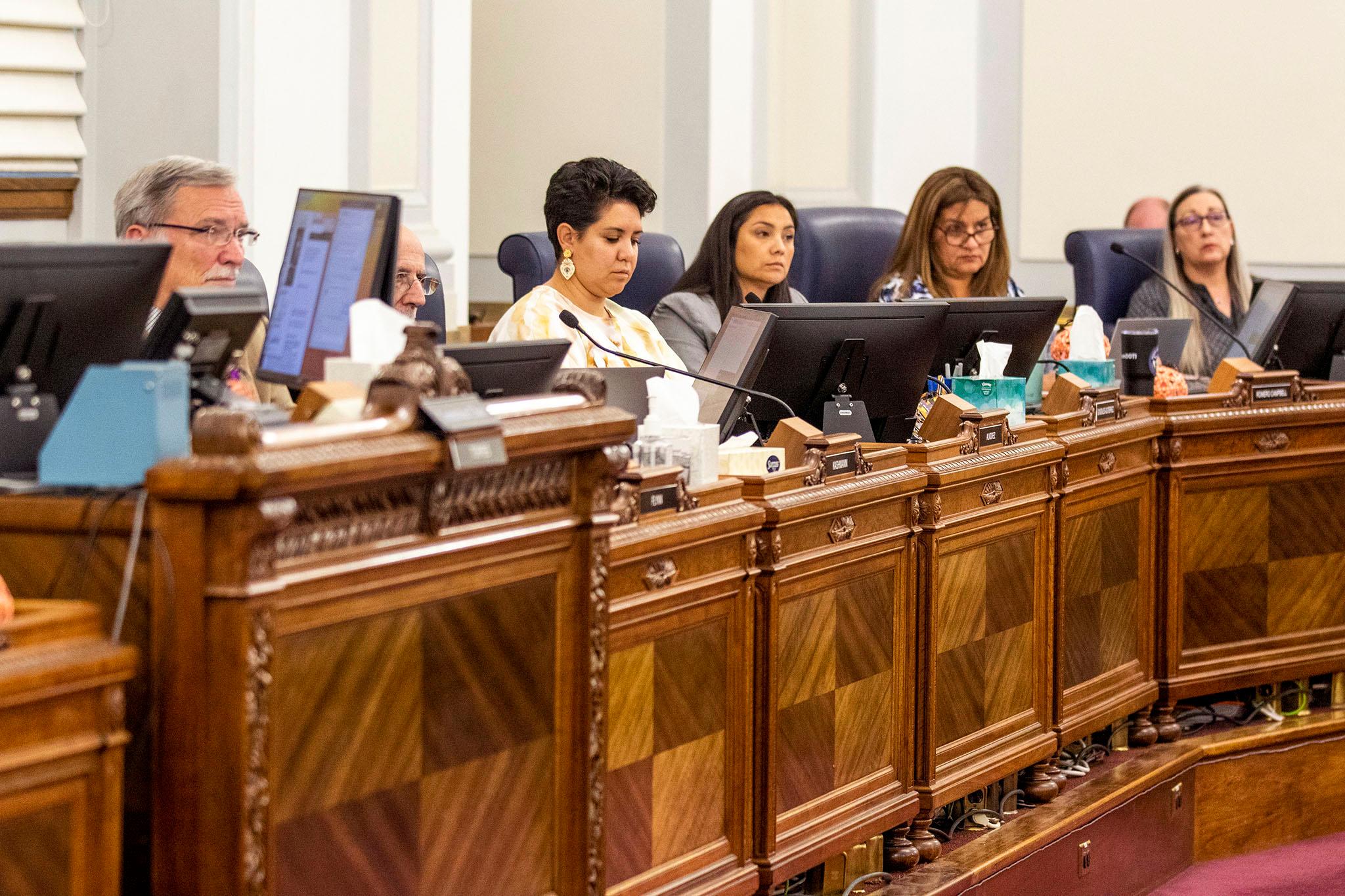Starting on July 1, youth appearing before Denver's municipal courts will be able to access legal representation from the Denver Municipal Public Defenders. City Council unanimously approved a bill amending city code on Monday.
Under the current system, youth called before municipal court meet with the City Attorney, who tells them their options for things like plea deals and different diversion programs. But if someone believes they are innocent and wants to dispute their ticket at trial, they either have to pay for their own attorney or represent themselves.
"That means a parent cannot represent them, another adult cannot represent them, they have to act as their own attorney, which I think is pretty wild," said Councilmember Serena Gonzales-Gutierrez, who co-sponsored the bill with Councilmember Paul Kashmann. Gonzales-Gutierrez has spent about 15 years as a social caseworker for youth, and often spent time in municipal court with people in the system.
"This is oftentimes the entryway for young people into the juvenile justice system, so I'm really thankful we can do some work upstream here, she said.
The city expects the bill to add about 50 additional cases per month to the Municipal Public Defenders' caseload. The public defenders will add one attorney and one administrative staff person to account for the increased workload, at a cost of about $350,000 per year. Kashmann said the Mayor's Office will allocate the funding after the bill officially passes. The July 1 timeline is set to give the city enough time to staff up, but city officials said they are open to moving that date up if the Public Defenders and courts are ready to go sooner.
"When I heard that kids as young ast 10 years old would face a judge with no representation... young kids were left on their own and very often thought that the deal the prosecutor was presenting to them was in their best interest, and very often that simply is not the case," Kashmann said.
Advocates of the bill say it will work to decrease the school to prison pipeline.
Elie Swiebel, Executive Director of the Colorado Juvenile Defender Center, said that youth who end up with minor charges can get expelled from schools. He said cases often involve things like smoking, vaping and breaking rules in public parks.
"If they don't have adequate counsel to advise them about their rights, about what it means to take certain offers... they may not understand that a violation or being adjudicated and found guilty can lead to an expulsion, can lead to being pushed out of education systems," Swiebel said at a committee hearing on the bill last month. "When young people lose that connection [with education] we know that there are higher risks to future involvement in our legal systems, and that starts with these low level charges"
Nicole Duncan, a member of the Youth Policy Council at ACLU Colorado, described how she often breaks out colored pencils and visuals to explain how cases work to youth as young as 10 years old who are going through the justice system.
"I ask if they know what a judge or a DA or a plea is, and the response is always no," she said. "What they do know is that they are scared and confused and immediately ask me if they're going to go to jail forever."
The bill brought together a wide range of groups often in opposition in the courtroom.
The Municipal Public Defenders, the City Attorney's Office, the Department of Public Safety, the Denver County Court and the Juvenile Defender Center all consulted on the bill.
"There are situations when the various stakeholders in the justice system are able to step outside their adversarial roles and come together to make positive change to the system," said Ari Krichiver, Deputy Chief Municipal Public Defender. "This ordinance change has been met by nothing but enthusiasm."
For some defender staff, the bill is personal. Jared Gomez, who works as a peer navigator at the Municipal Public Defenders, talked about when he and some friends went before a judge in Connecticut for a trespassing charge at the age of 14. Like with youth in Denver, Gomez lacked representation.
"Having a city attorney offer us a year of supervised probation in which no attorney could advise us on our rights as defendants was a very stressful, intimidating and humbling experience," he said during a hearing on the bill.
Gomez said the charge was ultimately dismissed because he was in the park during normal operating hours.
"We would have been subjected to probation due to an offense we did not commit," he said. "Looking back on these events, I wish I had an attorney to represent me."













